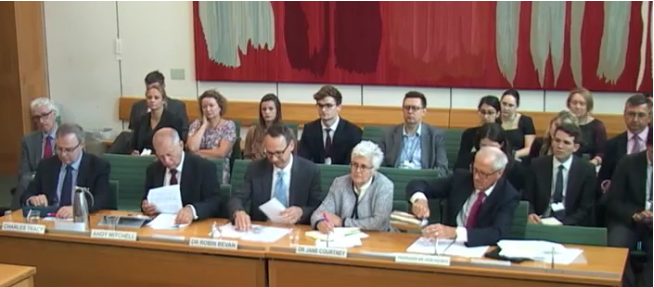Uncertainty over the effectiveness of costly incentives for prospective teachers, NAO warns MPs
The cost of bursaries for new teachers will amount to nearly £1bn by next year, but their effectiveness remains unclear, warns the National Audit Office.
Mark Parrett, Audit Manager at the Government spending watchdog, told the Education Select Committee that the NAO’s request for a better evaluation of the incentives to attract candidates to the profession had not been met by the Department for Education.

The Education Select Committee held a session on teacher supply, hearing from no less than nine different experts, including Prof Sir John Holman (President-elect of the Royal Society of Chemistry), Jenni French (Programme Manager in the Education Team, Gatsby Charitable Foundation and Joanna Hall, Deputy Director for Schools, Ofsted).
Mr Parrett told MPs: “On bursaries, the department did some qualitative analysis in 2012/13 and some quantitative analysis in 2013/14, which showed some link between bursaries and people wanting to apply to train as teachers, and that did show some positive relationship.
“However, they haven’t extended that to look at whether people then actually went on to apply, completed the training and went on into teaching and how well they did.”
Witnesses on the panel stated that the Government’s national perspective on issues to do with teacher supply does not give enough of an insight into what is happening at a local level, and that their data does not paint an accurate picture as it’s collected in December, when schools will have temporarily filled their vacancies. Ofsted’s Joanna Hall explained that the watchdog has concerns regarding the “granularity of regional and local data” on teacher demand.
Much of the session focused on Continuing Professional Development (CPD), with witnesses stating that Head Teachers need to modify their approach to it, as a lot of CPD has become “superficial”and that teachers need to take control of it. Jane Courtney, Deans of Education Network, pointed out that research suggests a minimum of 30 hours’ “cyclical imput” with practice in order for CPD to be effective.
A Head Teacher also part of the panel giving evidence argued that the biggest problem with CPD is caused by “snake oil salesmen” offering enticing presentation that ultimately prove to have no lasting impact. Sir John Holman suggested that if there is demand for high-quality CPD, then providers will oblige.
You can replay the evidence session here.